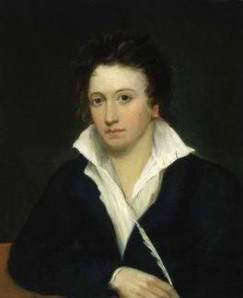National Poetry Month
by Andrew Swensen
It is National Poetry Month, and we at The Muse Dialogue want you to celebrate. I will start with a few suggestions from our own archives…
Last year, I wrote an article titled “Bring Back the Poets,” which holds a special place in my heart. Not necessarily because I think it to be especially good — I will leave you to be the judge of whether it is or not — but rather because it comes from the heart. I have written about many things here, and they all matter in their own way. Yet I have a special place in my heart for poetry. I will not be shy to say that the likes of Emily Dickinson, Walt Whitman, William Blake, William Wordsworth, and Mary Oliver have all changed my life with single works. Among the arts, poetry has so many wonderful qualities — it is portable, so compact that you could copy one and carry it in your wallet; and yet it has the capacity for such impact. Unfortunately, our era seems to have lost its regard for poets, except those who set their lines to music. While I also have great regard for some lyricists out there — John Lennon has penned some powerful lines — we do not spend enough time with the magnificence of the small, the beautiful poem.
You may be interested in hearing from a poet during this month, and we can offer you a couple of those as well. The poet Richard St. John, from our beloved Pittsburgh, offered up a two-part series “The Power of Personal Experience” (the link goes to the first installment, and a link to the second appears at the bottom). St. John has a wonderful sense for how poetry speaks to our individual selves, and to the power of truth. For a different sort of poetic offering, you may also be interested in an interview conducted last year with slam poet and education advocate Taylor Mali. The article also includes links to his work and a video to his performance of “Labeling Keys.”
Beyond those celebrations from our own pages, consider a couple of other wonderful resources. Both the Poetry Foundation and The Writer’s Almanac offer email subscriptions for you to receive a poem every day, and the Poetry Foundation has a host of other wonderful resources as well, all related to poetry, and The Writer’s Almanac includes the literary birthdays of any given date. I subscribe to both, and I encourage you to do so as well. The few minutes that it takes to read a poem can open doors of aesthetic experience that one cannot anticipate. It is a daily discovery, and the practice of checking in with a poem reminds us to always take time for a little art in the everyday moments of our lives.
One last suggestion: write a poem. It does not have to be good. It does not have to be long or complicated. It does not have to be shown to anyone. Yet the very act of artistic creation has its own benefits for the inner self. Cultivate that place in yourself, that place that can issue forth in artistic words. Make it your own private celebration of National Poetry Month.















